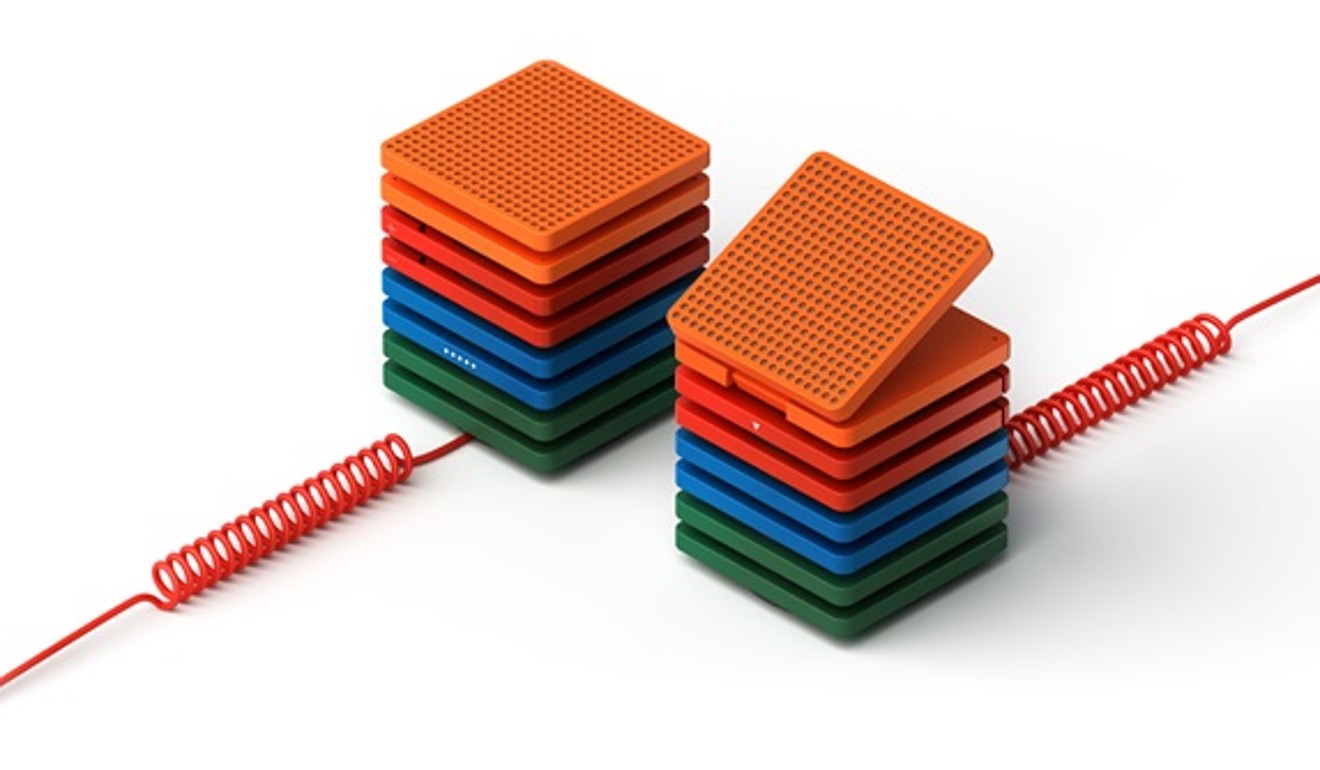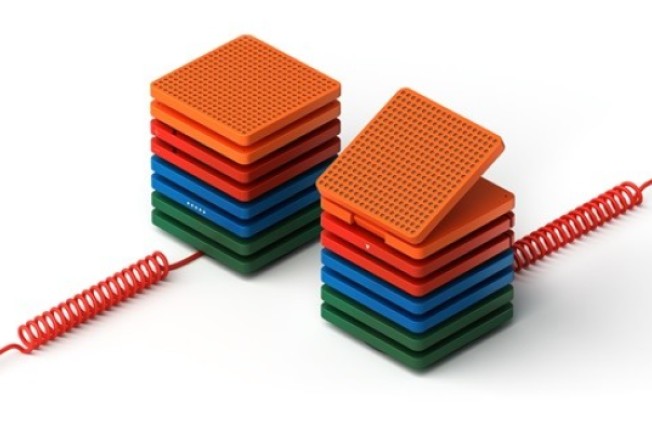
Amazon Echo meet Raven, the AI-enabled home speaker just launched by China’s biggest search engine
New voice-activated product, priced at 1,699 yuan, is part of a global trend to smart devices that use voice control instead of touch

The battle for artificial intelligence-enabled home speakers that is being waged between Amazon, Google and Apple in the US is similarly being fought in China by more than 100 local companies. On Thursday Baidu, the country’s dominant search-engine operator, entered the fray with its own voice-activated speaker in a fight for the future of smart homes in the world’s most populous nation.
Raven H is Baidu’s latest push into the commercialisation of artificial intelligence (AI), the centrepiece of its business revival plan following its February takeover of Beijing start-up Raven Tech, a developer of smart speakers similar to Amazon’s Echo.
“Humans and machines have been interacting with one another for years, but Raven H aims to create a world in which this interaction is seamless,” said Cheng Lyu, who heads Baidu’s intelligent hardware unit and was founder of Raven Tech.

The new voice-activated product, called Raven H, is part of a global trend from “touch-first” to “voice-first” consumer technologies, according to Lyu.
“These smart speakers and AI home robots may sound like a small step in the history of technology, but they will help people’s everyday lives and bring them an experience once only seen in sci-fi movies,” he said.
Apart from the smart speakers, Baidu co-founder and CEO Robin Li said the company will launch the upgraded version of its mobile Baidu app by the end of November, which will allow users to search information by sending voice requests even if “their eyes and hands are not available”.
Baidu has been ramping up efforts to boost adoption of its autonomous driving technology and DuerOS conversational assistant by opening its platforms to third-party partners, betting big that AI can turn around its business after it was hit hard by a regulatory scandal in 2016.
Autonomous driving and conversational AI products have so far earned negligible revenue for Baidu, but it posted nearly 30 per cent year-on-year revenue growth in the September quarter as its core online marketing business continues to expand through increased user engagement on its news feed and video products enhanced by AI technology.
“Strategically, Baidu is incentivised to promote voice over text input to draw users away from traditional smartphone usage where it has less influence and has lost ground to Alibaba and Tencent,” said Kirk Boodry, an analyst with New Street Research.
“Technology deployment is one step but commercialisation could prove more complicated. Selling devices is probably not enough. Selling the underlying services is more interesting but it is not clear what Baidu can sell in AI yet,” he added.
Powered by DuerOS 2.0, the Baidu product sells for 1,699 yuan (US$256), about three times Alibaba’s smart speaker and four times that of Xiaomi’s equivalent product. The Raven H has more than 200 skills, ranging from playing music to helping users choose their favourite television series, with all search requests done by voice.
Baidu is “training” the system to learn the different dialects in China, and the most difficult is Cantonese, according to Jing Kun, general manager of Baidu’s DuerOS business unit. There are plans to eventually introduce the device in other markets, he said.
Baidu has also teamed up with hotel chains to push the product. Raven H will be installed in more than 100 rooms owned by Intercontinental Hotel and Resort.
“We want our users to enjoy music in the most natural way,” said Lyu. “We hope that Raven H will become a smart brain for every family and a home necessity like the TV set, fridge and air conditioner.”
Earlier this week Tencent launched a companion robot with Taiwan’s Asustek Computer that can respond to voice commands and control smart devices in the home.
Statistics from IHS show that the global market for smart home devices was worth US$14.7 billion in 2017, with the Americas region representing 48 per cent of global revenues.
Baidu predicted in late October that its sales would reach between 22.23 billion yuan (US$3.34 billion) and 23.41 billion yuan in the December quarter, falling short of the projected 24.8 billion yuan. Baidu executives had warned investors not to expect near-term gains from its Apollo autonomous car platform or DuerOS voice assistant, which required long-term investments.